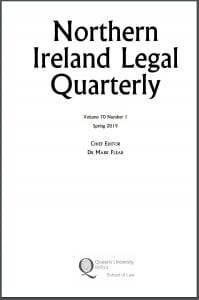By Dr Lee McConnell, Senior Lecturer in Law, University of Bristol Law School
Notions of the ‘public good’ or ‘public interest’ are found in many areas of legal doctrine and discourse. At the international level, references to such ideals are perhaps most common in the context of human rights, but they are also present in many other subfields of international law. The UN Charter commits itself to the promotion of ‘social progress and better standards of life in larger freedom’, and to the ‘economic and social advancement of all peoples’. In the domain of State responsibility, erga omnes norms are said to be owed to ‘the international community as a whole’ (Barcelona Traction at [33]). The UN Convention on the Law of the Sea designates areas of the seabed and ocean floor as ‘the common heritage of mankind’ (Art 126 and preamble). The Outer Space Treaty provides that space exploration ‘shall be carried out for the benefit and in the interests of all countries’ (Art 1). The GATT/WTO agreements recognise that trade relations should be ‘conducted with a view to raising standards of living, ensuring full employment and a large and steadily growing volume of real income’ worldwide (Marrakesh Agreement Establishing the World Trade Organization, preamble). As this brief survey demonstrates, international law is a field that ‘tells a story of its own progressive development, and of its prominent role in the betterment of others’ (Sinclair, 2017: 2) It is a field which portrays itself as playing a substantial role in responding to global concerns, and as possessing ‘an immanent progressive value for the world, for civilization, for humanity’ (Skouretis, 2011: 6). (more…)



